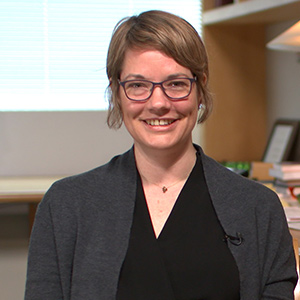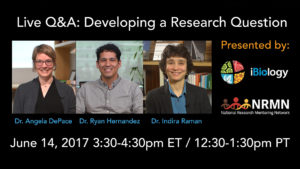Angela DePace is an Associate Professor of Systems Biology at Harvard Medical School. Her group is broadly interested in the evolution of transcriptional networks in animals. Whole genome sequencing for a wide variety of organisms has shown that across taxa, the set of protein coding genes is remarkably similar. Her work aims to understand how this common genetic toolkit, in combination with its transcriptional network, can generate organismal diversity. She is also committed to helping scientists communicate effectively. She co-developed and co-teaches a popular Science Communication course at Harvard Medical School. She is also a co-author on the highly regarded book Visual Strategies: A Practical Guide to Graphics for Scientists and Engineers. She received her bachelor’s degree in biochemistry and biophysics from Yale University and then moved on to earn her Ph.D. specializing in biochemistry from University of California, San Francisco.

Talks with this Speaker
Live Q&A: Developing a Research Question
Developing a scientific question is an essential first step in doing research. A well-formulated question focuses your research and guides your experimental approach. (Talk recorded in June 2017)

Audience:
- Researcher
- Educators of Adv. Undergrad / Grad
Duration: 01:01:51



